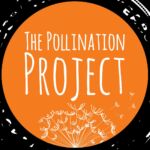Efforts to rebuild have already begun, and in this guest blog post we hear from The Pollination Project grantee, Janet Lotawa, about the impact of the storm on the communities in which she works.
For ten families in Tukuraki village, in the western region of Fiji’s main island Viti Levu, cleaning up after Cyclone Winston is a discouraging and all-too-familiar experience.
Twice within just five years, Tukuraki residents have felt the devastating effects of climate change disasters. Tukuraki village was one of several Yakete District communities hit by epic landslides in February, 2011. The landslides in this village wiped out an entire family, destroying the access road, fresh water resources, and homes of every full-time resident.
Now this community struggles to recover in the wake of Cyclone Winston, a category five storm that hit Fiji with destructive force on February 20. This cyclone was the second strongest storm to make landfall in recorded history.
Janet Lotawa, director of Seattle-based Fiji nonprofit, Rise Beyond the Reef (RBTR), was in Fiji during the cyclone, along with her husband and RBTR co-founder, Semi Lotawa. Since its inception in 2013, RBTR has been working in ten villages in Fiji’s largest province.
The Lotawas witnessed Cyclone Winston’s destruction firsthand, and have been assessing the damage and assisting for up to 14 hours per day with disaster relief.
“In some communities, there are hardly any houses left,” says Janet Lotawa. “So often we are first responders. The devastation is so extensive that the government won’t be able to address all the need. In areas hardest hit by the storm, nearly 95 percent of homes are gone.”
Tukuraki residents had not recovered from the first disaster when Winston hit, according to Janet Lotawa. Government relocation plans have taken some time and most residents were still in temporary housing. RBTR had been working to secure private funding while advocating to the Fiji government to help rebuild homes in Tukuraki village. “At this point, we are just trying to rehabilitate their temporary homes well enough so people have shelter.”
Without safe housing, Tukuraki residence took refuge in caves during the cyclone.
“Now after this cyclone, it’s blown everything,” says Simon Tudraki, who was the first to rebuild and replant after the landslide. “Given the severity in other parts of Fiji, we don’t know when we will be a priority. We have been pushed back to the qwaravatu (caves)”.
Rebuilding on their own is not an option for these residents. Tukuraki is a remote rural community where only 4.7% of villagers graduate high school and residents live 50-400% below the Fiji national poverty line.
“My family and I have been through a lot,” Tukuraki resident Alesi Nasiga told RBTR’s Semi Lotawa. “We’ve been through the landslide and now the cyclone. After the landslide we tried our best to build a proper house. But the cyclone tore apart our house, our clothes and our belongings, and now we are back in the cave. I just want to be in my house with my kids.”
The future of Tukuraki and other rural Fiji communities depends not only on rebuilding — an essential step — but also on creating resiliency for the future. Resiliency comes from establishing more stable alternatives that are more resistant to the ongoing effects of climate change, including setting up alternative income sources, exploring more resistant cash crops, providing education and training opportunities, and establishing pathways to women’s empowerment, including cash industries for women and girls. All of these are the mission of RBTR.
RBTR is a relatively small nonprofit, but it is the largest aid organization on the ground right now in the communities where it operates. Since the storm, several Seattle-based businesses have stepped up to support RBTR’s relief and rebuilding efforts. These include Kibble & Prentice and Atavus, both of which have ties to Fiji.
For the future, building resiliency will be the key to helping rural Fijian communities “weather the storm.”
Beyond donating toward relief, one of the most important ways U.S. citizens can support Fiji, Janet Lotawa says, is to come and visit. Tourism is core to Fiji’s economy, and many beautiful parts of Fiji were spared and are fully open and welcoming tourists. “Stronger than Winston is what everyone is saying on the island, and its true so long as our global community keeps returning ‘home’ to Fiji.”
“The devastation is so extensive that the government won’t be able to address all the need. In areas hardest hit by the storm, nearly 95 percent of homes are gone.”
To learn more about RBTR, or to donate to support their work in Fiji, visit their website or their Facebook page. You can also read more about their grant from The Pollination Project.


